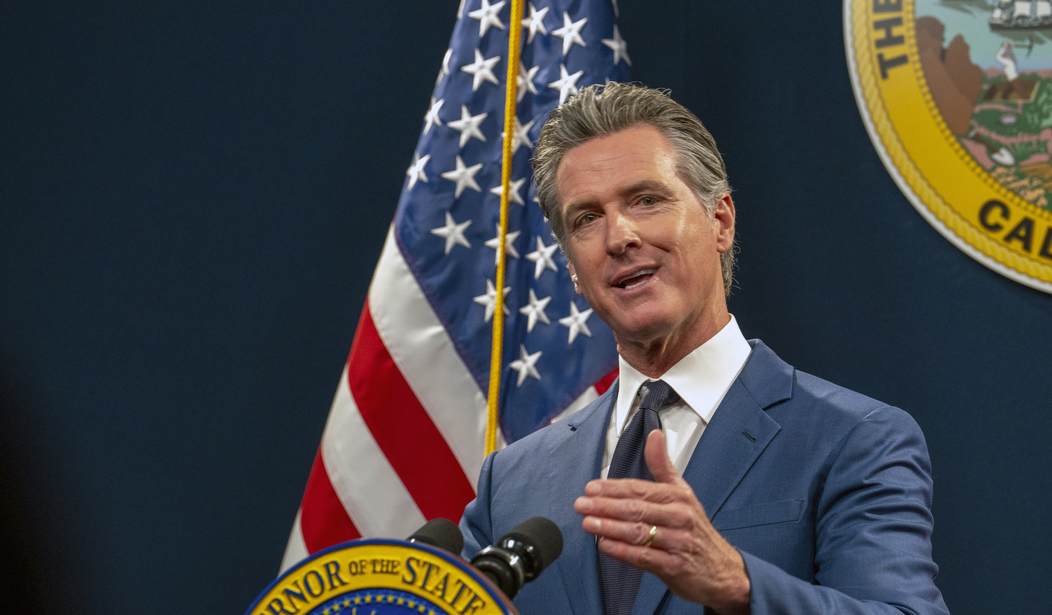California now leads the nation in imposing dumb wage laws.
The state just raised the hourly minimum wage for fast food workers to $20.
Gov. Gavin Newsom said, "We saw the inequities. ... we had a responsibility to do more."
Unions pushed for the higher minimum, and in Democrat-run states, unions usually get what they want.
CNN announced, "Half a million California fast food workers will now earn $20 per hour!"
Gullible leftists at the Center for American Progress claim, "A higher minimum wage would boost millions of families out of poverty and further stimulate the economy."
Yippee! It's a happy cycle! Win-win.
But wait, if it's win-win, why just make the minimum $20? Why not $30? Or $100?
Because government requiring higher wages is not a win-win.
Interfering with market prices always creates nasty unintended consequences.
Frederic Bastiat, in his work "That Which Is Seen, and That Which Is Not Seen," points out that there are always seen and unseen consequences when government force impacts economic decisions. "Almost always," he wrote, "the immediate consequence is favorable, the ultimate consequences are fatal."
In this case, the immediate consequence is that existing workers get a raise. Great. That's the seen. That's what the media, unions and Center for American Progress see. But the unseen effect is bigger, and worse:
No. 1: Thousands of Californians have already lost jobs because some restaurants closed. Others lost income because their employer cut worker hours. The chain El Pollo Loco cut employees' hours by 10%.
Recommended
Pizza Hut announced that they will lay off more than a thousand delivery drivers. One, Michael Ojeda, understandably asked, "What's the point of a raise if you don't have a job?"
No. 2: Workers who still have jobs will lose them because now their employers have more incentive to automate. Chipotle just created a robot that makes burrito bowls. Even CNN acknowledged, "Some restaurants are replacing (fast food workers) with kiosks."
No. 3: Prices go up.
The day Newsom signed the bill, he was asked, "Can Californians expect the prices of their McDonald's and Starbucks to go up?"
Newsom deceitfully replied, "I've heard that rhetoric before. And it didn't happen!"
Nonsense. It did happen. It always happens when government forces wage increases. In this case, Starbucks prices have increased as much as 15%. Customers will pay about $200/year more for their coffee. A chicken burrito at Chipotle will cost up to 8% more.
No. 4: Perhaps the worst unseen harm from minimum wage laws is that young and unskilled people won't even be hired. They won't gain valuable experience from a first job at a fast food restaurant.
In 2014, when Seattle politicians raised the minimum wage to $15 -- I asked some teenagers what a higher minimum wage could do for them.
"Minimum wage actually hurts my chances of getting employed," said one, Rigel Noble-Koza. "If I cost more, why would a company take a risk on hiring me? They'll hire the worker with more experience instead."
Another, Dillon Hodes, talked about his friend who had fast work but got her hours cut because "she was young and inexperienced."
Of course, these students were unusual. They were finalists in a Stossel in the Classroom contest. They are not economically ignorant. They knew to look for the unseen.
If only politicians were that smart.
Government price fixing like minimum wage laws hurt the young and the poor, the very people these laws are supposed to help.

























Join the conversation as a VIP Member